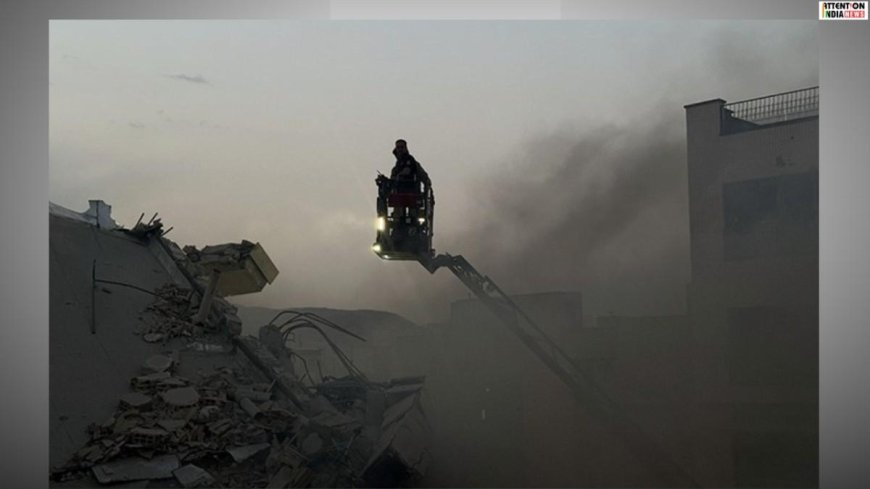Israel Iran Conflict: Iran launches another attack; air sirens heard in Israel
In response to Israel's midnight strikes, Iran's supreme commander promises to "inflict heavy blows" and launches ballistic missiles against Israel.

New Delhi (India) June 14: Iran has attacked Israel with hundreds of ballistic missiles and intensified the war between sworn rivals that could disrupt global oil supply and engulf the Middle East.
Tehran has taken its most aggressive action since Israel's midnight strikes killed senior Iranian generals and severely destroyed vital military bases. It has launched waves of missiles against Israeli cities.
Iran fired an attack of ballistic missiles at the heart of Tel Aviv after its military warned that "everyone will feel it.”
According to Israel's emergency agency Magen David Adom (MDA), 21 people who were hurt in Iran's missile attacks on Israel's central Coastal Plain region earlier have been evacuated.
The MDA claimed in a recent post on X that many people were seriously hurt, others were in light to moderate condition, and one person was in critical condition.
Iran's strong Islamic Revolutionary Guard Corps (IRGC) took credit for the retaliation attacks in a statement that said, "Using a combination of precision-guided and smart systems. Iran targeted military centers and air bases that served as the source of the criminal aggression against our country.”
The IRGC also said that "field reports, satellite imagery, and intercepted intelligence indicate that dozens of ballistic missiles effectively hit strategic targets." The missiles also hit Israeli military-industrial centres that manufacture missiles and other war weapons.
However, Israel claimed that a large amount of the threat had been effectively intercepted. Israel's military said after the bombardment that Iran had fired less than 100 missiles against Israel and had received a "few hits." According to Israel Defence Forces spokesperson Effie Defrin, several of those hits came from interception debris.
The Israeli Defence Forces have denied that Iran shot down numerous of its micro aerial vehicles and two of its Lockheed Martin F-35 Lightning II fighter jets. IDF spokeswoman Avichay Adraee described the accusations as "completely baseless."
Iran said its talks with Washington on its nuclear program are now "meaningless" and accused the US of backing Israel's largest-ever military attack on Tehran. The actions of the opposing side (the US) make conversation pointless.
Esmaeil Baghaei, a spokesman for the foreign ministry has said, "You cannot claim to negotiate while dividing work by allowing the Zionist regime (Israel) to target Iran's territory." He said that without Washington's approval, the Israeli strike would not have taken place and that Israel "succeeded in influencing" the diplomatic process.
Rafael Grossi, the director general of the International Atomic Energy Agency (IAEA) has reported to the United Nations Security Council (UNSC) that Israel's airstrikes on Iran's nuclear plant in Natanz resulted in internal chemical and radioactive contamination.
According to the head of the IAEA, the above-ground portion of the Pilot Fuel Enrichment Plant, which was enriching uranium up to 60% U-235, was destroyed by the Israeli attacks.
Israel had launched intense attacks on Friday on Iran's military and nuclear infrastructure. It has used drones and war planes that had previously been smuggled into the nation to destroy important facilities and kill senior generals and scientists. Israel claimed that this assault was important before its rival could move closer to developing an atomic weapon.
In response, Iran had launched dozens of ballistic missiles at Israel which has caused explosions that shook the buildings and lit up the skies over Jerusalem and Tel Aviv.
Aadrika Tayal

 Aadrika Tayal
Aadrika Tayal 





